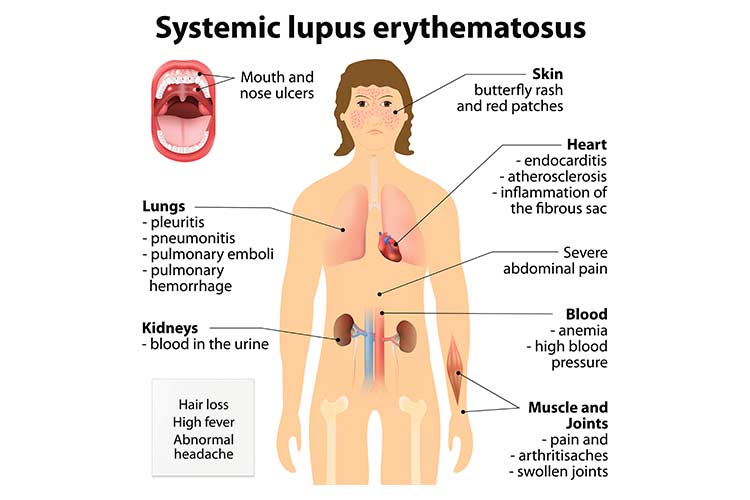Join Our eNewsletter!
Subscribe to our monthly newsletter to receive encouraging advice to help you lead a healthy lifestyle.

Debunking Myths About Lupus
Lupus is a chronic autoimmune disease that causes inflammation and typically affects the skin, joints, and internal organs. As with all autoimmune diseases, the immune system attacks healthy tissue, believing an infection or injury has invaded the body. Since lupus affects many different areas, it causes a variety of symptoms, the most common being extreme fatigue, pain and swelling in the joints, headaches, low grade fever, chest pain when breathing deeply, and sensitivity to light.
Although more than 5 million people around the world have been diagnosed with lupus, there’s still a lack of understanding about the disease, and many myths still exist.
Myth: Lupus Always Causes a Butterfly-Shaped Rash
One of the telltale signs of the disease is a butterfly-shaped, or malar, rash along the cheeks and nose, but not everyone with lupus develops one. In fact, only about half of those living with lupus do. For this reason, anyone who suspects they may have lupus shouldn’t rely on noticing a rash before seeing a doctor.
Myth: Lupus Is a Form of Cancer
Because chemotherapy is often used as a treatment for lupus, many people mistakenly believe that the disease is a form of cancer. Doctors will use chemotherapy and other infusion therapies to treat lupus because they can suppress the immune system and decrease inflammation. While those with lupus may be at higher risk for certain types of cancer, lupus is not cancer.
Myth: Only Women Get Lupus
Although women, especially of childbearing age, are four to 12 times more likely than men to develop lupus, men do get the disease. In fact, men are more likely than women to have more serious complications from lupus, particularly kidney issues and inflammation of the lining around organs. Although rare, children also get lupus, accounting for about 10% of all cases. While children as young as 5 have been diagnosed, most are diagnosed around the age of 13 and tend to have a more serious form of the disease.
Myth: Lupus Is Contagious
Lupus is an autoimmune disease. It’s not an illness that you can “catch” through contact with someone who has it.
Myth: Women With Lupus Can’t Get Pregnant
Women with lupus, they’re generally as fertile as any other woman during the childbearing years. It’s true, however, that pregnancy is considered high risk for women with lupus, which can increase the chances of serious complications during pregnancy and delivery, including preeclampsia and miscarriage.

Myth: Lupus Is Related to HIV/AIDS
The only factor lupus and HIV/AIDS have in common is that they both involve the immune system. Lupus is an autoimmune disease that causes an overactive immune system and attacks healthy tissue. HIV is a virus that causes AIDS and results in an underactive immune system, making it difficult for the body to fight infection.
These myths, along with the fact that the symptoms of lupus vary by individual and change over time, can create challenges when determining whether you have the disease. If you suspect you might have lupus, it’s important to talk to a Rheumatology specialist. Although there’s not yet a cure, early diagnosis is key to minimizing symptoms.








